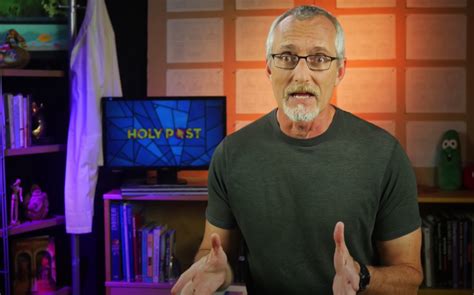A Quote by Charles Spurgeon
The law is for the self-righteous, to humble their pride: the gospel is for the lost, to remove their despair
Related Quotes
Self-righteousness is unavoidable. You can either be a self-righteous Pharisee where you think you are better than everyone else or you can be a self-righteous pagan who thinks you are better than the Pharisee. If you are a self-righteous person, I could become very self-righteous thinking that you're self-righteous and you think you're so good but I know you're bad. I know I'm bad so that makes me better than you.
I believe in pride of race and lineage and self: in pride of self so deep as to scorn injustice to other selves; in pride of lineage so great as to despise no man's father; in pride of race so chivalrous as neither to offer bastardy to the weak nor beg wedlock of the strong, knowing that men may be brothers in Christ, even though they be not brothers-in-law.
In the scriptures there is no such thing as righteous pride. It is always considered as a sin. We are not speaking of a wholesome view of self-worth, which is best established by a close relationship with God. But we are speaking of pride as the universal sin, as someone has described it. . . . Essentially, pride is a "my will" rather than "thy will" approach to life. The opposite of pride is humbleness, meekness, submissiveness, or teachableness.
True conversion means turning not only from sin but also from depending on self-made righteousness. Those who trust in their own righteousness for conversion hide behind their own good works. This is the reason that self-righteous people are so angry with gospel preachers, because the gospel does not spare those who will not submit to the righteousness of Jesus Christ!
We make a big mistake when we conclude that the law is the answer to bad behavior. In fact, the law alone stirs up more of such behavior. People get worse, not better, when you lay down the law. To be sure, the Spirit does use both God's law and God's gospel in our sanctification. But the law and the gospel do very different things.
The Gospel is temporary, but the law is eternal and is restored precisely through the Gospel. Freedom from the law consists, then, not in the fact that the Christian has nothing more to do with the law, but lies in the fact that the law demands nothing more from the Christian as a condition of salvation. The law can no longer judge and condemn him. Instead he delights in the law of God according to the inner man and yearns for it day and night.
The fatuous idea that a person can be holy by himself denies God the pleasure of saving sinners. God must therefore first take the sledge-hammer of the Law in His fists and smash the beast of self-righteousness and its brood of self-confidence, self wisdom, and self-help. When the conscience has been thoroughly frightened by the Law it welcomes the Gospel of grace with its message of a Savior Who came-not to break the bruised reed nor to quench the smoking flax-but to preach glad tidings to the poor, to heal the broken-hearted, and to grant forgiveness of sins to all the captives.
We are called to love others. We share the gospel because we love people. And we don't share the gospel because we don't love people. Instead, we wrongly fear them. We don't want to cause awkwardness. We want their respect, and after all, we figure, if we try to share the gospel with them, we'll look foolish! And so we are quiet. We protect our pride at the cost of their souls. In the name of not wanting to look weird, we are content to be complicit in their being lost.
Whether a Commonwealth suffers more by hypocritical pretenders to religion or by the openly profane? The most dangerous hypocrite in a Commonwealth is one who leaves the gospel for the sake of the law. A man compounded of law and gospel is able to cheat a whole country with his religion and then destroy them under color of law.

































